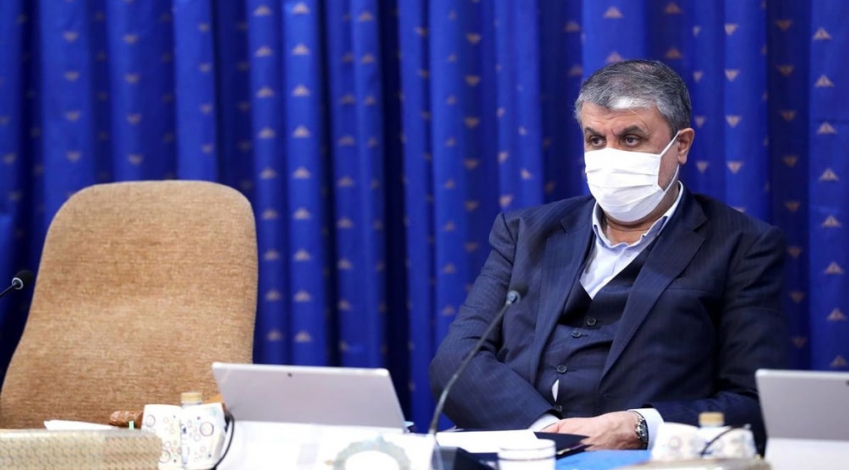Friday 25 February 2022 - 20:49
Story Code : 394048
Iran says its nuclear work hindered by IAEA despite honoring agencys laws
Mohammad Eslami said on Thursday that under articles two and three of its Statute, the IAEA is duty-bound to encourage and assist the development and practical application of peaceful atomic energy throughout the world.
Yet that is the only thing they have withheld from us, Eslami noted. Not only did they withhold help, but they also created obstacles. But with the grace of God and the support of the Leader (Ayatollah Seyyed Ali Khamenei), we have a glorious [nuclear] roadmap today, which we should expand in all dimensions.
He further said that Iran is entitled to develop its civilian nuclear energy program, having joined the IAEA and the Non-Proliferation Treaty (NPT) as a member state and having been subject to the IAEAs most rigorous inspections.
Nevertheless, he continued, some countries accuse us of trying to make an atomic bomb.
Iran and the IAEA have been at odds over several issues in recent years.
The IAEA certified Irans compliance with the 2015 Iran deal 15 times until 2019, when the country began to ditch some of its nuclear obligations in a legal retaliatory move a year after Washingtons unilateral withdrawal from the deal.
Tehran has criticized the agency for taking politicized positions toward its nuclear activities.
Iran and six world powers the US, Russia, China, France, Britain, and Germany struck the deal, officially known as the Joint Comprehensive Plan of Action (JCPOA), on July 14, 2015.
The JCPOA, which went into effect in January 2016, promised Iran international sanctions reliefs in exchange for certain caps on its nuclear activities. However, Tehran has complained about repeated violations by the other side since the first day the deal was implemented.
In May 2018, the US pulled out of the JCPOA to implement a maximum pressure campaign against Iran despite Irans full compliance, re-storing the sanctions that the deal had lifted and adding new ones.
Eslami argued that Iran has been targeted with sanctions due to its resistance against domination.
In all the years since the victory of the [Islamic] Revolution, we have always been sanctioned because we did not accept domination and put anti-hegemony on our agenda, he said.
Under the weight of the sanctions, he went on to say that, Iran has managed to achieve proper defensive capabilities and advance its national interests and security.
Also on Thursday, Eslami reiterated Irans position with regard to the Vienna talks, saying the purpose of the negotiations is to have the US sanctions removed.
The Islamic Republic of Irans stance in this regard is clear, and the negotiators follow up on the same stance, he told Tasnim news agency.
He explained that the talks are aimed at having the sanctions removed, establishing a verification regime on the removal of sanctions, and taking guarantees from the other side that they will not violate the JCPOA again.
Iran and the JCPOA participants are engaged in the eighth round of talks in Vienna to revive the Iran deal by ending Washingtons maximum pressure campaign and bringing it back into complete compliance with the pact.
By PRESS TV
# Tags











